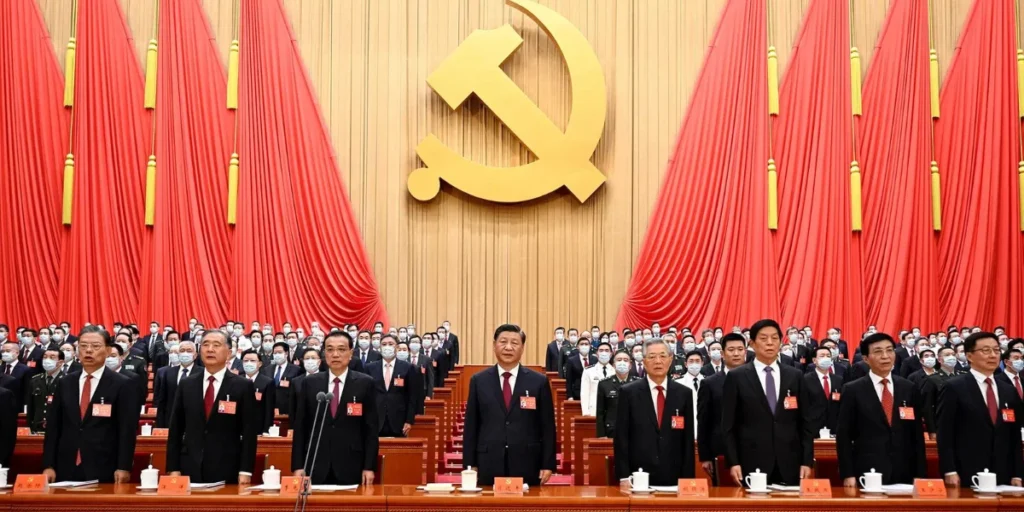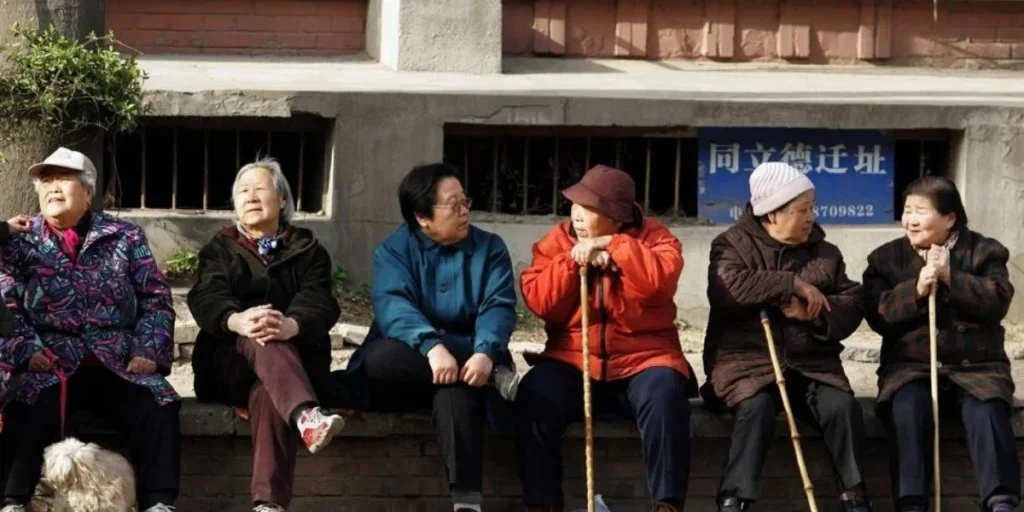Table of Contents
China is taking significant steps toward adjusting its social and economic policies, particularly in regard to its aging population. One of the most impactful changes on the horizon is China raising the retirement age. As the nation faces demographic shifts and the strain of supporting its growing elderly population, the decision for China to raise the retirement age has become a key focus. This article dives into the details of China to raise the retirement age, the potential implications, and the societal reactions to this shift.
Why Is China Raising the Retirement Age?

Before looking at why China raised the retirement age, it is important to consider the following facts. The decision stems from demographic shifts that have occurred over the past few decades. As for the demographics of manpower in China, there are issues related to the aging population, which means that the number of workers is decreasing, while the number of retirees is increasing.
Due to this development, China’s social security and pension systems are facing challenges because the labor force, which has driven the country’s economy for many years, is in decline.
Currently, the retirement age in China ranges from 60 for men to 50-55 for women, depending on their profession throughout their career. This issue of retiring at such an early age is no longer feasible, as the majority of the population is now expected to live up to an average age of 77 years—a significant advancement compared to the 1960s, when life expectancy was only 44 years on average.
This is why raising the retirement age makes sense in China. It is expected to help rebalance the working-age population with the increasing number of elderly individuals. According to the government, extending the working years of its citizens will reduce pressure on the social security systems and ensure economic stability.
China’s Plan to Raise the Retirement Age

What Changes Can We Expect?
China Raises the Retirement Age has indeed been a significant topic of discussion recently, even though a nationwide policy has not yet been implemented. However, it remains on the government’s agenda as the country seeks to address the challenges associated with its aging population and the benefits that come with it. Some officials have proposed a step-by-step strategy to implement the change gradually, aiming to minimize controversy while addressing demographic concerns.
Incremental Changes
Yet what is happening in China is not a sharp change but a gradual increase in the retirement age over the course of several decades. This strategy aims to ease the transition to an aging population, taking into account the significant changes it will bring to the economy and labor market. China raising the retirement age may involve a uniform or variable increase, depending on the specific implementation plan. This phased approach is designed to adapt to the evolving demographic landscape while minimizing disruptions.
Uniform or Variable Age Increases
It might also have a possibility of having different time of retirement according to factors like the gender, the profession or geographical location. For instance, the Chinese government’s policy of increasing retirement age means that women in some fields may be retiring at an age that is nearly similar to those of men; this is a move in the direction of gender parity at the working place.
Phased Implementation
A gradual approach may be used where implementation of changes happen in stages; some regions or certain sectors will be the first to be affected. This would enable authorities to watch how such a policy will operate within various sectors in other provinces before going into mass production of taking the policy across the country. It may take less time for the Chinese workers to absorb the overall increase in the retirement age, especially the skilled and, urban workers whereas, the rural and the less-industrialized regions may take longer time.
Impacts of China Raising Retirement Age on Workers
Worrying and Wooing of China’s Retirement Age Excites More Challenges than Opportunities for Workers
One of the primary concerns with China raising the retirement age is whether employees will be required to work longer than expected. Many workers, especially those in physically demanding jobs, might find it challenging to continue working for additional years. This could lead to negative implications such as decreased job satisfaction, reduced productivity, and increased susceptibility to health complications.
However, in professions where experience and expertise are highly valued, China raising retirement age could present opportunities. Employees in roles unaffected by telecommuting—such as educators, healthcare providers, IT professionals, and managers—might appreciate the chance to stay in their current positions longer. This extension could allow them to earn more and potentially access better pension schemes where available.
Furthermore, this policy might contribute to a shift in how retirement is perceived, moving from a final stage to a more open and fluid concept, reflecting a more adaptable approach to the later stages of an individual’s career.
Economic Effects of China Raising Retirement Age
Economic Implications of Increasing Retirement Age in China
From an economic perspective, increasing the retirement age in China can have several effects. On the positive side, china raising retirement age is likely to alleviate the burden on the pension system. More people working for additional years will improve the ratio of workers to retirees, which can reduce government expenditure and ease the pressure on public resources.
Moreover, hiring staff who are older than the typical retirement age can be beneficial for productivity. China raising retirement age aims to retain experienced, skilled, and knowledgeable workers within organizations. As China’s economy transitions from relying on low-cost labor to focusing on innovation, retaining talented workers for as long as possible can provide substantial economic benefits.
However, increasing the retirement age in China might also impact youth employment by potentially limiting job opportunities for younger individuals and contributing to higher youth unemployment. Employers may need to make adjustments to accommodate older workers, such as redesigning workspaces, enhancing healthcare packages, and investing in job training programs to help older employees adapt to new technologies and industry standards.

How China’s Retirement Age Reform Will Affect Families
However, this paper aims to focus on both the economic impact of China raising the retirement age and the social effects of this significant policy change. According to Chinese cultural practices, the role of the family is of paramount importance, particularly concerning the welfare of the elderly. Traditionally, women who retire are expected to take on family responsibilities, such as caring for children and other family members. If parents delay their retirement, these family dynamics may shift, as more individuals continue contributing to the family income for an extended period.
Elderly workers who would have retired to care for grandchildren may find themselves unable to fulfill these responsibilities, potentially leading to a greater reliance on external childcare services. Conversely, continued employment allows older workers to support their families for a longer period, which can be beneficial financially.
China raising the retirement age also introduces intergenerational equity issues. While this policy may address some short-term economic challenges, it could create conflicts related to the extended working years of older generations, which are aimed at meeting broader economic objectives. The government will need to address the needs of various generations to ensure social and political stability within society.
How Does China Intend to Increase the Retirement Age?

At the time of writing, China’s retirement age was set at 60 years for men, 55 years for white-collar women, and 50 years for blue-collar women. According to the new policy, Chinese authorities plan to increase the retirement age in stages, with the first step to be implemented in 2024. The changes are expected to be gradual, allowing both workers and employers sufficient time to adapt to the new standards.
It is evident that China raises the retirement age to create a more flexible system. In certain companies, workers may take early retirement if allowed by company policies, or they may choose to continue working beyond the set age if their health permits and their company’s policies allow for it.
What If China Decides to Increase the Retirement Age?
The decision for China to raise the retirement age will have widespread implications across various sectors:
- Economic Impact: One of the primary reasons behind China’s decision to increase the retirement age is the potential economic benefits. Extending the working years of the population would reduce the pension burden on the financial system and contribute to the growth of national productivity.
- Social and Health Impacts: While China raising the retirement age may offer economic benefits, the social and health implications need careful consideration. Many employees may be unable to continue working past the current retirement age, particularly in labor-intensive sectors. The government may need to introduce training and development programs for older workers to help them remain employable in the job market.
- Global Comparisons: China’s decision mirrors actions taken by other countries with aging populations, such as Japan, Germany, and the U.S., where retirement ages have been adjusted in response to rising life expectancies.
Reaction to China Deciding to Increase in China Raise To Retirement Age

China increasing retirement age has, as expected, elicited varied reactions from members of the population. This decision raises concerns, particularly among those nearing retirement age, about how it will affect their lives. The idea of working longer is not well received, especially among individuals in physically demanding jobs, as continuing work may become difficult as they grow older.
At the same time, younger generations have been more receptive to this policy change, understanding why China has decided to increase the retirement age as a necessary measure to sustain the country’s economy in the long term. However, there is also concern about employment opportunities for the younger workforce. As older people continue working to save for retirement, there is a likelihood that job openings for younger individuals may decrease, potentially exacerbating youth unemployment.
Reaction to China Deciding to Increase China Raise Retirement Age
China raises retirement age has, as expected, elicited varied reactions from members of the population. This decision raises concerns, particularly among those nearing retirement age, about how it will affect their lives. The idea of working longer is not well received, especially among individuals in physically demanding jobs, as continuing work may become difficult as they grow older.
At the same time, younger generations have been more receptive to this policy change, understanding why China has decided to increase the retirement age as a necessary measure to sustain the country’s economy in the long term. However, there is also concern about employment opportunities for the younger workforce. As older people continue working to save for retirement, there is a likelihood that job openings for younger individuals may decrease, potentially exacerbating youth unemployment.
Issues Facing China to Raise Retirement Age System

Before China raises retirement age, there are several problems that the country needs to address regarding its retirement system. China’s pension system is built on three pillars: the public pension scheme, the occupational scheme, and private pension schemes. However, many workers, particularly in rural areas and the informal sector, do not have access to any pension plan. This poses a significant challenge for China raising retirement age, as older workers may rely more on family support or personal savings than state pensions.
Moreover, there are existing health disparities between urban and rural populations, which complicate the idea of uniformly increasing the china raising retirement age. Urban workers, especially those who are educated, generally have better access to healthcare and tend to live longer, healthier lives than their rural counterparts. As a result, it is easier for them to continue working into old age, while rural workers may face more significant challenges.
What Does China’s Decision Mean for the Global Workforce?

Decision on China Raising Retirement Age
China to raise the retirement age may have ripple effects on the global workforce. As one of the world’s largest economies, China’s labor policies influence global markets and trends. China raising retirement age could encourage other nations facing similar demographic challenges to follow suit. In this interconnected world, how China addresses its aging population will be closely watched by other countries dealing with their own retirement and pension reforms.
Moreover, China raising retirement age could affect global trade dynamics by potentially keeping experienced professionals in the workforce longer, thereby maintaining China’s competitive edge in industries that rely on specialized skills and expertise.
Challenges and Opportunities for Businesses

In the case of businesses operating in China, the raising of retirement age in China translates into both opportunity costs and benefits. On one hand, this policy may necessitate changes in workforce management due to the increasing number of elderly workers. This might involve redesigning jobs to accommodate older employees, adjusting working hours to be more convenient for them, or developing retraining programs to ensure their continued effectiveness in the workplace.
On the other hand, China raising the retirement age can provide companies with a more qualified and reliable workforce. Industries that require highly skilled employees, such as manufacturing, healthcare, and education, stand to gain significantly from retaining experienced older workers. Firms that adapt to this policy by making provisions for an aging workforce may benefit from increased staff retention and enhanced organizational stability.
While there are challenges, China raising the retirement age presents significant opportunities for businesses, especially in industries focused on eldercare, healthcare, and employment services for older workers. Companies that offer flexible work arrangements, re-skilling programs, and health-related services for aging workers may see increased demand.
Businesses that understand the needs of an older workforce will be better positioned to attract and retain talent in this evolving market. Additionally, financial service providers are likely to benefit from China raising retirement age, as individuals will require more comprehensive retirement planning, savings solutions, and insurance products to support their longer working lives.
While there are challenges, China raising the retirement age presents significant opportunities for businesses, especially in industries focused on eldercare, healthcare, and employment services for older workers. Companies that offer flexible work arrangements, re-skilling programs, and health-related services for aging workers may see increased demand.
Businesses that understand the needs of an older workforce will be better positioned to attract and retain talent in this evolving market. Additionally, financial service providers are likely to benefit from China raising retirement age, as individuals will require more comprehensive retirement planning, savings solutions, and insurance products to support their longer working lives.
References
The Chinese government’s proposal to china raise retirement age is one of the major reforms addressing demographic challenges such as population aging and a shrinking working population in the country. These changes, set to begin in 2025, are the first major reform of retirement plans since the 1950s.
The plan involves gradually extending the working period: men from 60 to 63 years, white-collar women from 55 to 58 years, and blue-collar women from 50 to 55 years. This incremental change is proposed to occur over a 15-year period for each segment to ease the transition and increase public tolerance.
The shift is driven by several factors. China’s population is aging rapidly, with life expectancy reaching 73 years by 2021 and expected to exceed 80 years by 2050. Demographic projections indicate that the proportion of people over 60 years will rise to over 30% by 2035, putting significant pressure on the pension system. The government believes that china raising the retirement age will help alleviate this burden and support economic growth and a stable workforce.
Despite generating concerns among citizens, many experts view the reform as a necessary adjustment. Critics argue that older employees may face discrimination, particularly as employers might favor younger workers who are more familiar with technology. Conversely, supporters of the policy suggest that China to raise the retirement age could address labor shortages and reduce the fiscal strain on the pension system.
Conclusion
Preparing for China’s Retirement Age Reform
In conclusion, China raising the retirement age is a critical step in addressing the country’s aging population and the related economic and social challenges. While the policy introduces hurdles, such as potential intergenerational conflicts and the strain on workers in physically demanding jobs, it also presents opportunities for economic growth and a redefined view of aging in the workforce.
As China raises the retirement age gradually, businesses, workers, and policymakers will need to evolve and adapt. By approaching this change thoughtfully, China can address its demographic challenges while fostering a more sustainable and prosperous future for all generations.
Ultimately, China raising the retirement age reflects broader global demographic trends. How China navigates this transition will have significant implications both domestically and internationally, influencing how societies worldwide address aging populations and economic sustainability.
In conclusion, China raising retirement age is a critical policy move aimed at addressing the challenges of an aging population, securing the pension system, and ensuring sustainable economic growth. While this decision has sparked debate, it reflects the reality many nations face today: balancing the needs of an aging population with the demands of a modern economy.
As China begins to implement its phased in china raising retirement age increase in 2024, it will be crucial for the government, businesses, and society as a whole to work together to ensure a smooth transition. Though the challenges are significant, the opportunities for innovation and growth in supporting an older workforce are equally substantial.

